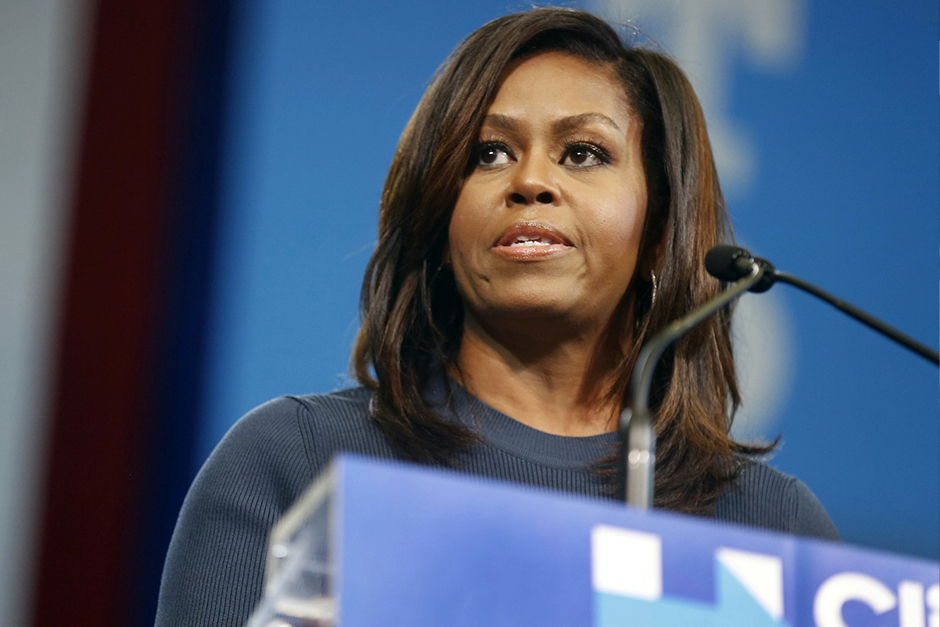In a political landscape often characterised by cautious diplomacy and measured statements, former US First Lady Michelle Obama recently delivered what many are calling a significant “truth bomb.” During a candid interview at the Klick Health conference in New York, when asked if the United States was ready for its first female president, Obama’s response was refreshingly direct and unapologetic: “You’re lying. No, we’re not ready.” This unfiltered assessment has sent ripples across global discussions on gender, leadership, and societal readiness, prompting a closer look at the complex interplay of expectations, biases, and the immense pressures faced by women in the highest echelons of power.
The Weight of Expectation: Michelle Obama’s Candid Assessment
Michelle Obama, a figure revered for her grace, intelligence, and straightforwardness, did not mince words when articulating her perspective. Her statement wasn’t a dismissal of a woman’s capability to lead, but rather a stark commentary on the societal and political environment that a female leader would currently inherit. She elaborated on the extraordinary burden and scrutiny that would undoubtedly fall upon the first woman to hold the Oval Office, describing it as an almost insurmountable challenge.
“We are so jaded with politics that a woman has to be 1000% better than any man,” Obama stated, highlighting the double standards prevalent in public life. She spoke from a place of deep personal experience, having navigated eight years as First Lady, enduring intense public scrutiny while maintaining her composure and dignity. Her insights resonate deeply, pointing to a persistent underlying bias where women in power are often judged not just on their policy and performance, but also on their appearance, temperament, family life, and even the tone of their voice. The expectation is not merely competence, but perfection, a standard rarely applied to their male counterparts.
Her words serve as a powerful reminder that while progress has been made in various spheres, the invisible barriers to true gender equity in leadership remain formidable. It’s not just about electing a woman; it’s about society’s readiness to accept and support her without imposing disproportionate, often gender-specific, burdens.
A Global Lens: Leadership, Gender, and Public Readiness
Michelle Obama’s comments, while directed at the American context, spark a broader, global conversation about the readiness of nations for female leadership. From an Indian perspective, her statement carries a particularly interesting resonance. India, in stark contrast to the US, shattered this particular glass ceiling decades ago. Indira Gandhi became Prime Minister in 1966, holding the office for over fifteen years, establishing a powerful legacy as one of the world’s most influential female leaders. Following her, India also saw Pratibha Patil serve as its first female President from 2007 to 2012. These historical precedents showcase that electing a woman to the highest office is not an abstract impossibility but a lived reality for many nations.
However, the Indian experience, much like that of other countries with female heads of state, also subtly reinforces Obama’s underlying point about societal readiness. While India has had formidable female leaders, their tenures were not devoid of intense scrutiny, gendered criticism, and battles against patriarchal norms. The challenges faced by leaders like Indira Gandhi — often having to assert their authority in male-dominated political circles and confronting biases in media portrayal — underscore that electing a woman is only one step. The deeper challenge lies in dismantling the systemic biases and creating an environment where a female leader can govern with the same degree of public trust and less gender-specific pressure than her male counterparts.
Globally, countries like Germany (Angela Merkel), New Zealand (Jacinda Ardern), and Finland (Sanna Marin) have demonstrated strong female leadership, yet the conversation around their ‘soft power,’ empathy, or even their personal choices often differs significantly from how male leaders are assessed. This suggests that “readiness” is not a binary state of existence but a continuous journey towards a more equitable and discerning political culture, one that judges leaders purely on merit and performance, irrespective of gender.
Beyond the Ballot: What “Readiness” Truly Means
Michelle Obama’s “truth bomb” pushes us to consider what “readiness” truly entails. It’s not merely about voter willingness to tick a box next to a woman’s name. It delves into the deeper societal infrastructure of support, media fairness, and institutional biases. It speaks to the psychological burden placed on a woman who would not only have to lead a nation but also implicitly carry the weight of representing her entire gender, knowing that her every mistake could be amplified as an indictment of women’s leadership capabilities as a whole.
Her assessment underscores that for the US — and arguably for many other nations, despite their historical precedents — the journey to genuine gender parity in leadership is far from over. It requires not just breaking glass ceilings, but also sweeping up the shards of prejudice and rebuilding the foundations of public perception. Until then, as Obama suggests, society might still be “lying” to itself about its true readiness, demanding an impossible standard that no leader, male or female, should be forced to meet.




